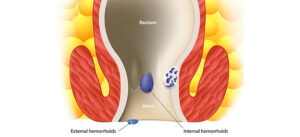Have you experienced your periods becoming irregular recently? Or perhaps you’re breaking out more frequently than normal, feeling significantly more tired, or noticing more hair on your chin or jawline? These could be early warning signs from your body that something deeper is at play—maybe Polycystic Ovary Syndrome, better known as PCOS.
What are the early signs and symptoms of PCOS is a question many women ask, especially when their body starts behaving in unfamiliar ways. PCOS is the most prevalent hormonal disorder in women of reproductive age. However, it often goes undetected for years since its early symptoms may resemble normal hormonal fluctuations or stress-related changes. In this blog, let’s take a closer look at what are the initial signs of PCOS, what PCOS feels like in its early phase, and how to confirm if you have PCOS.
Understanding PCOS: A Quick Overview
Before diving into the symptoms, it’s helpful to understand what PCOS actually is. PCOS is a condition in which the ovaries produce higher-than-normal levels of androgens (male hormones), which can interfere with ovulation and egg development. This hormonal imbalance can lead to a variety of physical and emotional symptoms that develop gradually, often making it hard to identify in the beginning.
What Are the Initial Signs of PCOS?
One of the most frequently asked questions is, “What are the initial signs of PCOS?” Although symptoms can vary from one woman to another, some common early signs of PCOS include:
- Irregular Periods
This is usually the first warning sign of PCOS. If your menstrual cycles are consistently longer than 35 days, too brief, or unpredictable, your body might not be ovulating regularly. Some women even go several months without menstruation.
- Persistent Acne
While occasional pimples are common, frequent breakouts—especially along the jawline, chin, and cheeks—could be a result of increased androgen levels. This kind of adult acne is stubborn and resistant to regular skincare routines.
- Excess Facial and Body Hair
Unwanted hair on the face, chest, abdomen, or back (a condition known as hirsutism) is another classic symptom of PCOS. This happens due to elevated levels of male hormones and should not be dismissed as just a cosmetic concern—it’s a hormonal red flag.
- Hair Thinning or Hair Loss on the Scalp
Oddly, while there may be increased hair growth in unwanted areas, many women also experience hair thinning or even balding at the crown of the head. This imbalance is again linked to elevated androgens.
- Sudden or Unexplained Weight Gain
Many women with PCOS find it difficult to maintain a healthy weight or lose excess fat, even with a balanced diet and regular exercise. This is commonly due to insulin resistance, a core feature of PCOS.
What Does PCOS Feel Like in the Beginning?
A lot of women wonder, “What does PCOS feel like in the beginning?” The early phase of PCOS often feels like your body is simply not functioning the way it used to. Some common feelings women report include:
- Bloating, low energy, or unexplained fatigue
- A gut feeling that something is “off” with their mood or skin
- Clothes fitting tighter around the waist despite no change in diet
- Feeling tired even after 7–8 hours of sleep
Emotionally, PCOS can feel confusing and overwhelming. Its symptoms often mimic other conditions like anxiety, depression, or thyroid issues, making it easy to overlook the real cause. In fact, many women only get a proper diagnosis after months or even years of frustration.
What Is the First Stage of PCOS?
So, what is the first stage of PCOS? PCOS doesn’t usually show up all at once. It tends to develop slowly and quietly. In most cases, the initial stage is hormonal imbalance, often detected through subtle changes.
You may still be menstruating, but your cycles may become irregular or accompanied by severe PMS symptoms. Some women notice oilier skin, mild acne, or a few facial hairs—seemingly minor changes that don’t raise immediate concern. But over time, these signs often intensify.
In teenagers and women in their early twenties, these early changes are frequently mistaken for normal puberty or stress-related issues. That’s why awareness and early attention to symptoms are so important.
How Do I Confirm If I Have PCOS?
Once you recognise these symptoms, the next big question is: “How do I confirm if I have PCOS?”
- Track Your Symptoms
Start by keeping a record of your menstrual cycles, any acne breakouts, weight changes, hair growth, mood changes, and fatigue. This information can be valuable for your doctor to identify patterns.
- Consult a Medical Professional
A homeopathic physician will evaluate your symptoms and medical history. During consultation, they might ask:
- Are your periods irregular or absent?
- Have you gained weight suddenly or found it hard to lose weight?
- Do you have signs of excess androgen like acne or facial hair?
- Get Diagnostic Tests
To confirm a PCOS diagnosis, most doctors use the Rotterdam Criteria, which require any two of the following:
- Irregular or absent ovulation
- High levels of androgens (either through blood tests or visible symptoms)
- Polycystic ovaries seen on ultrasound
Other lab tests may also be recommended to rule out related conditions like thyroid dysfunction, elevated insulin, or high blood sugar.
Why Early Diagnosis Is Crucial
Identifying PCOS early can help you take proactive steps to manage it and prevent complications such as:
- Infertility or difficulty conceiving
- Type 2 diabetes and insulin resistance
- High cholesterol and cardiovascular risks
- Anxiety, mood disorders, or depression
Don’t wait until symptoms become unbearable. If you suspect something isn’t right, get it checked out. Early action can make a big difference in your long-term health.
Homeopathy’s Role in Managing PCOS
At our clinic, we’ve met countless women who feel frustrated, unheard, and emotionally drained by PCOS. The good news is that homeopathy offers a holistic and personalised path to healing.
Rather than just masking the symptoms with hormonal pills or insulin regulators, homeopathy addresses the underlying causes of hormonal imbalance. Each woman is treated as a unique individual. For instance, one may struggle with mood swings and cystic acne, while another battles fatigue and irregular cycles—homeopathy tailors treatment to these specifics.
Homeopathic care has shown encouraging results in:
- Regulating menstrual cycles
- Reducing acne and excessive hair growth
- Enhancing fertility naturally
- Supporting emotional well-being
- Promoting sustainable hormonal balance
Conclusion
PCOS doesn’t appear overnight. Its signs often start as whispers—slight changes in your period, skin, hair, or energy levels. Recognising what are the early signs and symptoms of PCOS allows you to take timely steps and avoid more serious complications down the line.
Remember, you’re not alone. PCOS affects millions of women, many of whom silently battle with symptoms they assume are “just stress” or “normal fluctuations.” But real healing begins with awareness, action, and the right guidance.
If you’re wondering, “How do I confirm if I have PCOS?”, don’t ignore your body’s signals. Seek help, get the tests done, and consider holistic approaches like homeopathy. Because your health deserves attention, and your hormones deserve balance—not band-aids.
Book an appointment with us @Ccube homeopathy and bid farewell to hormonal imbalance.




